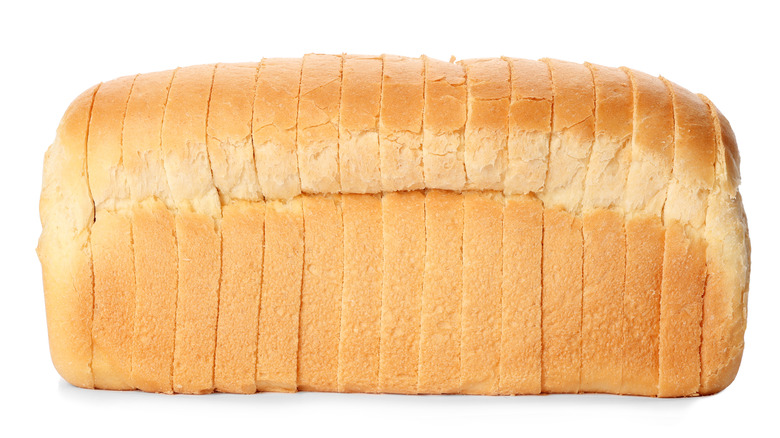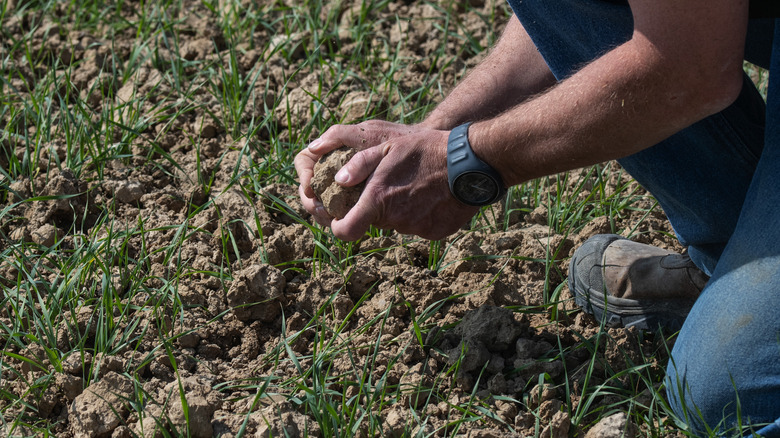Why The Price Of Bread Probably Won't Be Falling Anytime Soon
Bread might have taken center stage as a dominant social media darling during the coronavirus pandemic, but as it turns out, making our own bread didn't mean the food item had gotten cheaper because fewer people were buying it. Instead, like the yeast it relies on for lift, white bread prices actually rose by 3.2% between January 2020 and March 2021, while pan white bread soared by nearly 13% (via Quartz). The price hikes didn't happen uniformly across the board either, because the Northeast saw the highest spike, with pan white bread costs soaring by 27.4%, so that a commodity which once cost $1.20 now costs $1.60, give or take.
Unfortunately, those of us who love our bread are in for an even tougher time because climate change is about to drive wheat costs even higher. Hot, dry weather is decimating wheat crops across America's bread basket states like North Dakota, South Dakota, Minnesota, Iowa, and Nebraska — all of which have seen extreme levels of heat and record lows in soil moisture levels. According to The Wall Street Journal, an estimated 63% of the country's wheat crop is in "very poor condition." Last year, just 6% of the wheat was classed in that category. In its latest monthly supply and demand report, the U.S. Department of Agriculture expects corn, wheat, and soybeans stocks to hit bottoms they haven't seen since 2013.
Climate change is hurting wheat crops around the world
It's not likely to make us feel better to know that we're not alone. Canada and Russia, which also grow this all-important grain, are both reporting poor wheat crops for different reasons. Like the U.S., Canada's wheat growing region is being hit by both drought and heat, while in Russia, farmers are picking up after a particularly bad winter. All this will come together at some stage and trigger price hikes for other wheat-based foods like pasta and breakfast cereal. One wheat industry executive is already making a dire prediction. "Consumers are going to see higher prices, no question about it ... whatever that price is at the time a baker calls, gets translated right then and there into the flour price," King Milling Company's executive vice president James Doyle said (via Bloomberg).
With supply chain problems from transport as well as logistics and labor costs kicked up by the coronavirus pandemic, both public and private sector officials are now on the lookout for inflation, which looks like it could be a problem since prices across the board have risen by about 2.4% on average since the pandemic struck (via Quartz).

